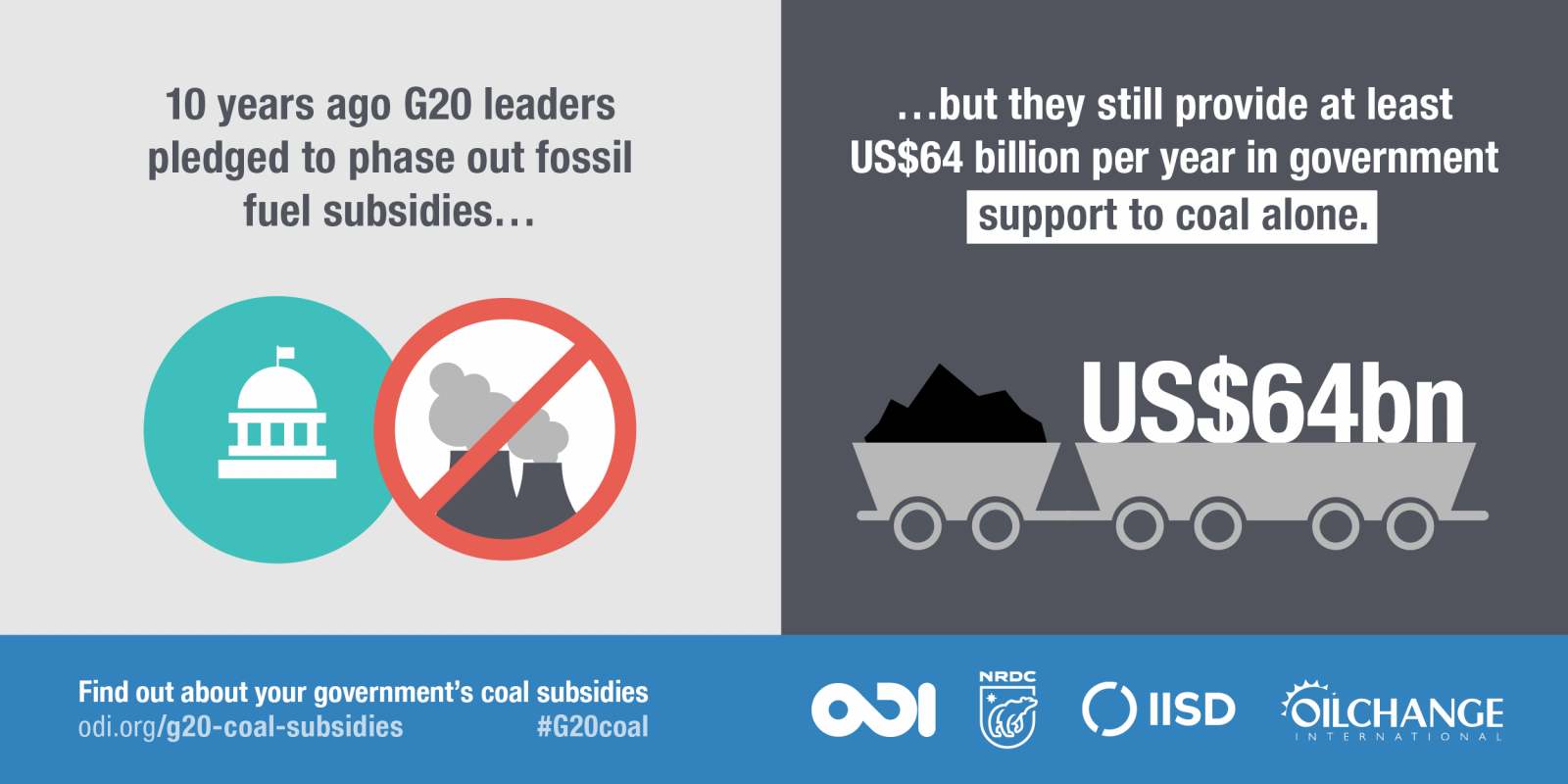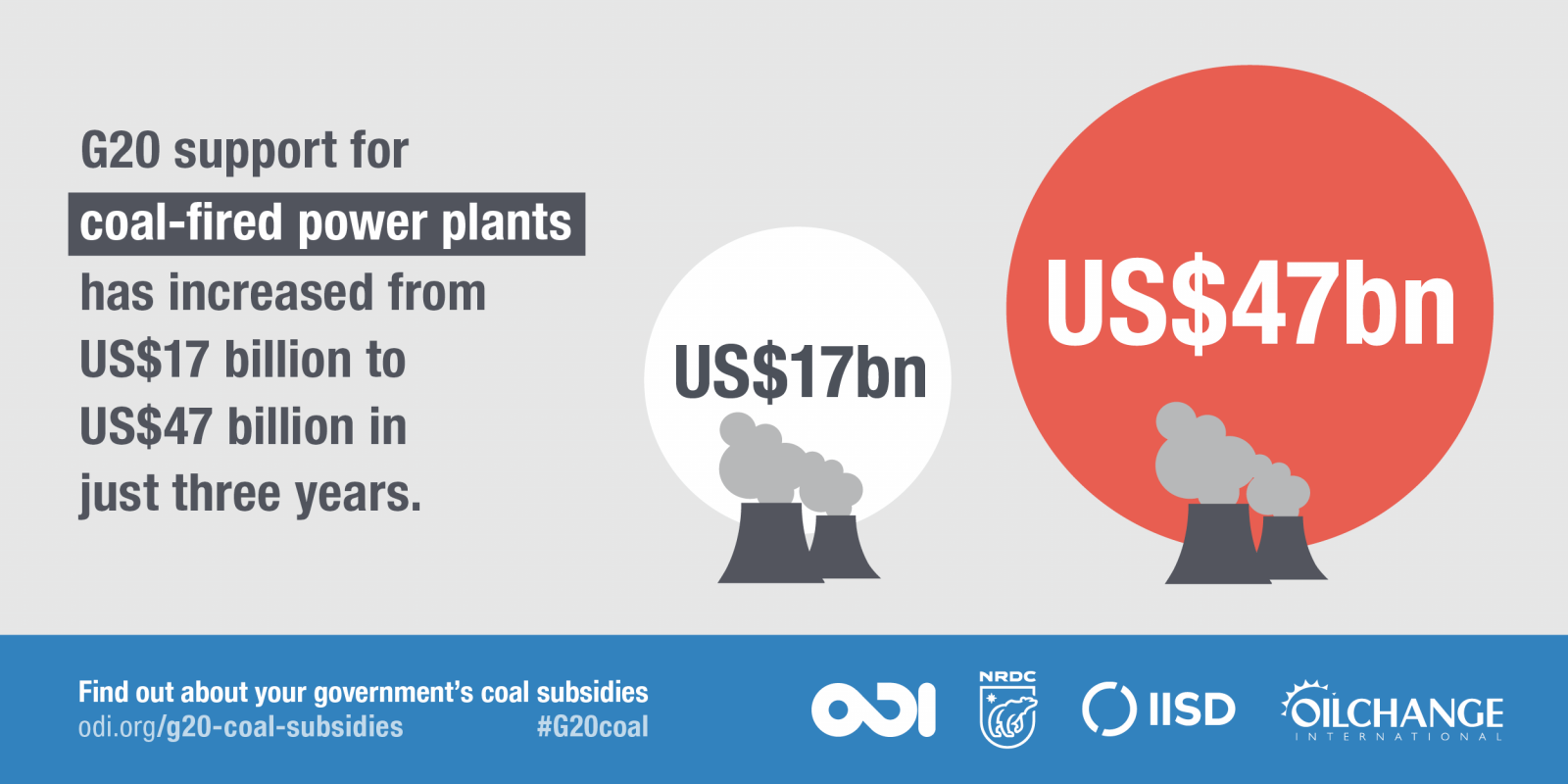Days before representatives of the G20 meet in Japan, a new report has been published by the Overseas Development Institute, or ODI, which reveals these nations are spending at least $63.9 billion on coal annually.
The new ODI report, G20 coal subsidies: Tracking government support to a fading industry, finds that G20 nations are supporting coal domestically and internationally to the tune of $63.9 billion each year, despite committing in 2009 to phase out fossil fuel subsidies.
Specifically, the report finds that G20 governments are supporting coal to the tune of $27.6 billion annually in domestic and international public financing, $15.4 billion in fiscal support, and $20.9 billion in state-owned enterprise (SOE) investments.

Further, and despite a global trend towards developing clean energy — which repeatedly shows itself as the cheapest form of new power generation, as shown most recently by Bloomberg New Energy Finance’s (BNEF) New Energy Outlook 2019 report — the level of support for coal from G20 governments has increased in recent years. ODI found that support has grown from just over $17.2 billion per year (2013-2014) to $47.3 billion (2016-2017).
That’s a 175% increase over the span of three years.

“It has now been ten years since the G20 committed to phasing out subsidies to fossil fuels, yet astonishingly some governments are actually increasing the amount they give to coal power plants,” said lead author Ipek Gençsü, Research Fellow at ODI. “Momentum is growing around the world for governments to take urgent action to tackle the climate crisis. Ending subsidies to coal would bring environmental, social and economic benefits to all and help set a level playing field for clean energy.”
The report does its best to track down all the ways in which G20 nations are financially supporting coal, but not every avenue is easily accessible. ODI shows that there are several countries providing “substantial subsidies” for the consumption of coal-fired power, but adds that “there is very limited transparency” and the specifics are unclear. Indonesia is one country which can be seen to be supporting coal, providing over $2.3 billion in fiscal support. According to the authors of the report, Indonesia’s “stated reason” for this support is “to compensate electricity generators for the increase in coal prices and for having to sell electricity to domestic consumers under regulated prices.” The authors of the report also found subsidies relating to the provision of below-market prices for electricity consumers in China, Mexico, Russia, and South Africa.
“In reality, government support to coal is much larger than our report’s numbers show, because many G20 countries still lack transparency on the many ways they subsidise coal,” explained Ivetta Gerasimchuk, IISD Lead for Sustainable Energy Supplies and another co-author of the report.
Released only days before the G20 meets in Japan for its annual summit, the report highlights Japan’s consistent support of overseas coal. Specifically, Japan remains one of the G20’s largest providers of public finance for overseas coal, providing up to $5.2 billion a year. This undermines comments made by Japanese Prime Minister Shinzo Abe in September 2018, who said “Climate change can be life-threatening to all generations … We must take more robust actions and reduce the use of fossil fuels.”
“Other G20 governments may struggle to take Japan’s rhetoric on climate change seriously, as this year’s G20 host government continues to pour billions of dollars into propping up coal in Japan and around the world,” said Han Chen, manager of international energy policy at NRDC and co-author of the report. “If Prime Minister Abe is serious about dealing with climate change, he should lead by example and end Japan’s government-backed finance for coal.”
The annual G20 meeting begins on Friday.